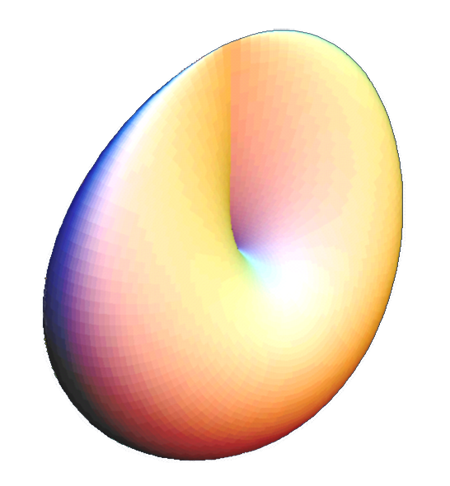Most of the ones I've heard about are generally not all that interesting, like the 3-sphere (positive curvature) or 3-torus (zero curvature), and most models seem to be kept in the range of orientable manifolds.... what Iwas wondering is if there are any other closed surfaces besides spheres/hyperspheres that have been considered for our universe, or if that's the only one that would work, of if there's no way to know, etc, etc....
While most models are being based on sphere and torus topologies, there are some people playing with higher dimension versions of non-orientable manifolds like the real projective plane or the Klein bottle. The Klein bottle is a pretty well known topological figure, but the real projective plane isn't nearly as popular. As it happens, the real projective plane is the topological figure that I often wrestle with as a mental exercise.
The standard immersion of the real projective plane into Euclidean 3-space is rather trivial looking...

But there is a problem with this version from a differential topology point of view in that it has two points (called Whitney Umbrellas) which are non-differentiable (non-smooth). In differential topology you want smooth immersions of manifolds, and one example of such an immersion is my Avatar, which is the build up of this version...

But I've always felt that you lose a lot of knowledge about these things if you just sit back and watch a computer draw it for you, so periodically I sit down with a handful of sheets of paper and from memory draw different versions of this surface, like this one I did for my wife a few years back (with further examples here)...

I have outlined a tutorial on how to create such drawings, but haven't had the time to finish it... though I hope to in the next few months.
All that might be somewhat off the topic, but without a definite answer as to the true topology of the universe, a study of a number of different topological manifolds might one day provide the insight we need.
The non-hand drawn figures were made using 3D-XplorMath.






